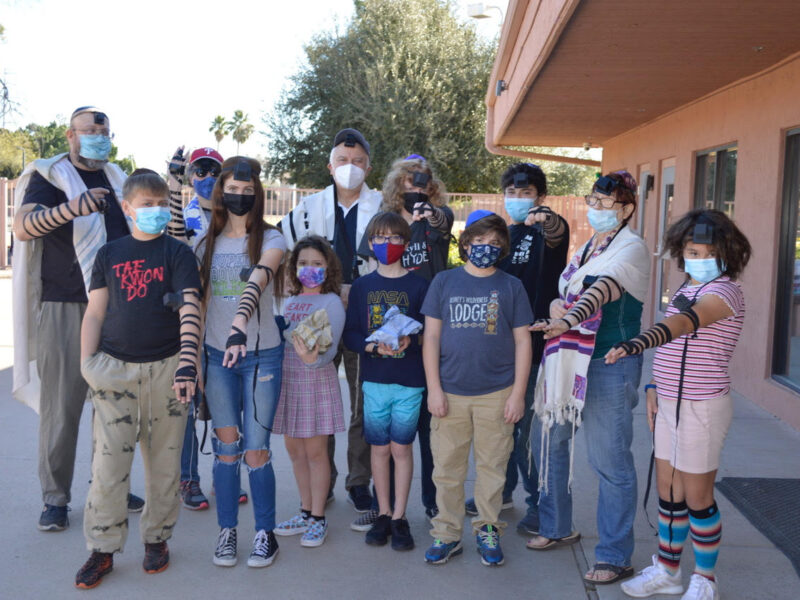As computers, cell phones and other evolving technologies become more tightly woven into the fabric of our daily lives, summer camps struggle with a growing dichotomy.
As a business, camps rely on technology to efficiently manage everything from registration and medical information to alumni relations. But camp has traditionally been a technology-free oasis that allows our youth the opportunity to develop skills and relationships unfettered by omnipresent connections to parents and the world.
At the last biennial conference of the Foundation for Jewish Camp, technology was a hot topic.
Blogging on the foundation’s website after the event, Rabbi Jason Miller wrote, “The general consensus among camp experts is that technology shouldn’t be seen much by the campers who should unplug and have an electronics-free oasis during their summer experience.
However, today’s summer camps must be run efficiently with the most up-to-date technology available.”
Even the companies charged with helping camps run as businesses feel that the place for technology is in the camp office.
CampBrain, used by about 1,000 camps, is management software intended to assist camps in all aspects of running their operation. “Our real purpose is to enable camp administrators to manage their camp as efficiently as possible, so most of our tools are directed at functionality for them and for the parents during the year,” says CampBrain CEO Rob Carmichael. “But, from what we have seen, most camps choose to limit campers’ use of technology, wanting to provide a time and space for other things like sports, activities, relationship-building, character-building, etc.”
Paul Berliner, COO of CampMinder, which provides a business management platform for more than 600 camps, voices an even stronger stand on camper access to technology. “My personal opinion is camps are a device-free refuge to learn life skills naturally,” says Paul. “In the 21st century there is a serious lack of specific life skills like teamwork, productivity, relationships … things you don’t learn behind a screen … (but) that you can learn naturally in a camp environment.”
The American Camp Association estimates there are 12,000 American camps – approximately 7,000 are resident camps and 5,000 are day camps; this number provides room for a multitude of policies and opinions on technology. From its 2013 biennial Emerging Issues survey, the ACA notes, “We know that 74% of camps don’t allow campers to use any personal electronic devices at any time, and 85% of camps indicate that campers are able to communicate with their parents via hand-written letters or postcards.”
Founded in 1921, B’nai B’rith Camp has “very strong unplugged practices for our campers, and (we) do not share photos during the summer,” according to Camp Director Michelle Koplan. At both the winter office and the campgrounds on the Oregon coast, professional staff “use technology to keep our business efficiently and effectively running.” But for the campers the summer is essentially screen-free, with the exception of “projector screens for song sessions and movie nights.”
Although many camps do post photos during the summer to keep parents connected, at BB Camp “Our board and staff have determined that, while it may be a bit harder on the parents, giving the kids a few weeks in the summer free of their electronic tethers and their parents’ loving eyes significantly enhances their camp experience,” says Michelle. “You are giving your children a great gift by sending them to camp, where they are disconnected from technology and busy experiencing, exploring, playing, learning and, yes, building friendships for life.”
The Union for Reform Judaism doesn’t have a nationwide policy on technology use at camps. URJ Camp Kalsman Director David Berkman says all camps struggle with the prevailing culture of perpetual connection. At Kalsman, campers are allowed to use some technology but do not have access to email or cell phones or anything that connects to the Internet.
“Camp, we feel, provides a rare and valuable opportunity to connect with individuals on a face-to-face basis and with their sense of Judaism, spirituality and nature,” says David. “You can’t do that if your thumbs are tied to a screen.”
At Camp Nageela West, which is moving to Arizona this summer, campers are allowed to use technology, but not communicative technology such as cell phones or Internet.
“Many campers use iPods, iPads and other devices, and we do occasionally employ a computer in activities,” says Rabbi Dani Locker, director of Camp Nageela West. “We want campers to discover the joys of outdoor living and disconnecting from technology on their own, not feeling like it’s been ripped away from them. We also feel that using technology in moderation is a teachable value, whereas completely shunning technology may work while at camp, but has little staying power once they get home.”
The camp also makes use of a concept inherent in Judaism – Shabbat.
“We unplug completely on Shabbat, and encourage campers to do the same at home,” says Rabbi Dani. “And we encourage them to diversify their daily activities so that they are not ruled by technology.”
But not all camps are the same.
“Types of camps range incredibly – it is not just what one thinks of as a secluded overnight camp in the woods,” says CampBrain’s CEO Rob Carmichael. “For those traditional camps, I would suggest the vast majority want their campers to unplug. However, there are camps for entrepreneurs, camps for technology learning, camps for just about every specialty you can imagine … and those camps may have a different take on technology at camp.”
In fact the ACA Emerging Issues survey notes 54% of directors responded that they had added a new activity or program in the past two years, including 12% who have added STEM programs (science, technology, engineering, math).
Many day camps offer specialty camps that use technology extensively. Science camps include computer programming, robotics and video game creation. Some art camps also rely on technology for areas such as web animation and film editing. Many day schools offer summer programming that allows campers to continue to learn in an informal, exploration-based setting that often uses technology.
Parents who want to find residential or day camps that include technology programs as a primary or secondary focus can explore ACA’s “Find a Camp” tool online at find.acacamps.org.





